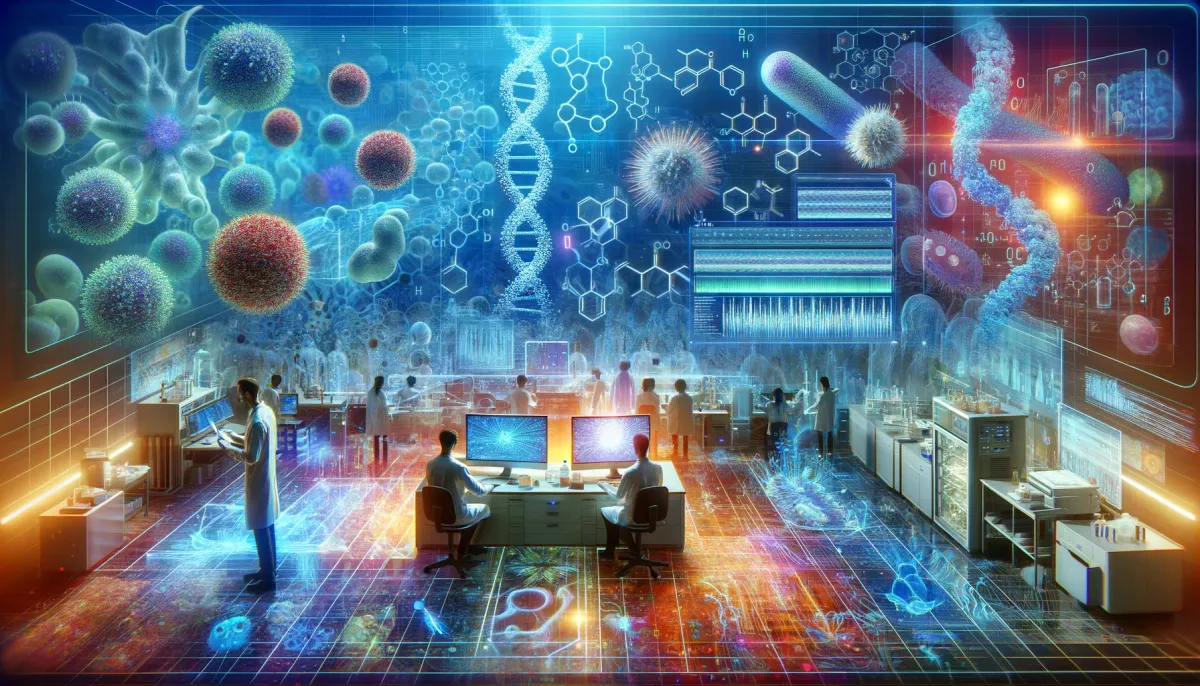AI Predicts Nearly 1 Million New Antibiotics in Groundbreaking Study

Thu, 06 Jun 2024
In a major breakthrough, scientists have used artificial intelligence (AI) to predict nearly 1 million new antibiotics, according to a recent study. The research marks a significant advance in the use of AI in antibiotic resistance research. The study's authors say that this discovery has the potential to accelerate the development of new antibiotics and combat the growing threat of antimicrobial resistance.
According to Dr. César de la Fuente, an author of the study, the researchers used an algorithm to mine 'the entirety of the microbial diversity' on Earth, resulting in almost 1 million new molecules encoded or hidden within microbial dark matter. This massive dataset was then analyzed using machine learning, which enabled the scientists to identify potential antibiotics. Of the 100 peptides tested, a whopping 79 were found to be active in vitro, with 63 of these targeting pathogens.
This is HUGE - AI predicted nearly 1 MILLION new antibiotics in groundbreaking study. Out of 100 tested peptides, 79 were active in vitro, 63 of these targeted pathogens “We have been able to just accelerate the discovery of antibiotics,” de la Fuente said. “So instead of having… pic.twitter.com/RQjGl8Nall
— Dr Singularity (@Dr_Singularity) June 6, 2024
The study's findings are significant because antimicrobial resistance is an increasing concern globally, resulting in more than 1.2 million deaths annually. The World Health Organization (WHO) predicts that this number could increase to 10 million deaths by 2050 if left unchecked. Therefore, the discovery of new antibiotics has the potential to save countless lives and mitigate the growing threat of antimicrobial resistance.
The researchers hope to conduct additional investigation on the top candidates for potential antibiotic drugs, followed by phase one clinical trials if the results are promising. This study demonstrates the power of AI in accelerating scientific discoveries and highlights the importance of continued research in this area.
Published by Chronicles Of India. Scroll down to read more



